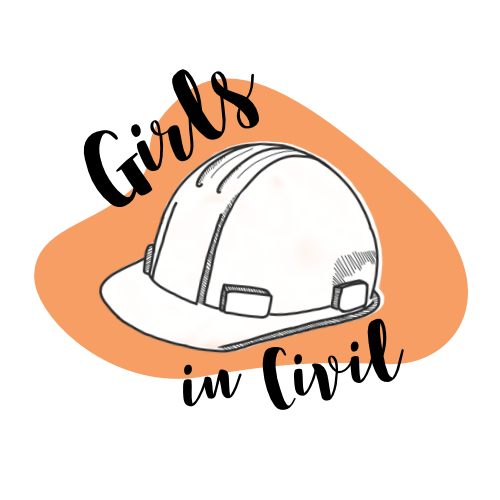Meet Katie Kelly!
Today, we’re excited to spotlight Katie Kelly, a bridge engineer at Kimley-Horn whose passion for civil engineering is grounded in purpose, precision, and people. From navigating gender bias in a male-dominated field to building a career rooted in advocacy and mentorship, Katie’s journey is one of persistence and impact. She shares how she found her voice, claimed space in technical roles, and continues to make room for others, reminding us that representation and resilience go hand in hand.
Let’s get to know her story!
Quick facts:
Pronouns: She/her/hers
Location: Atlanta, GA
What inspired her to join this field?
“What inspired me to join this field was the desire to do work that makes a tangible, lasting impact on people’s lives. Civil engineering offers that opportunity every day—whether it’s designing infrastructure that improves safety and mobility, helping communities become more resilient, or creating public spaces that bring people together.
I was especially drawn to the blend of technical precision and public service. I love that our work requires both problem-solving and empathy—understanding not just how to make something stand, but how it fits into the fabric of a neighborhood, a city, a life. That mindset has stayed with me as I’ve grown in this profession and become more involved with initiatives that support young engineers, promote accessibility, and build connections between technical excellence and social responsibility.”
What challenges has she faced, and how has she overcome them?
“One of the most persistent challenges I’ve faced in civil engineering is navigating gender bias in a field where women—especially in structural engineering—are still significantly underrepresented. From the start of my career, I was often the only woman in the room, which came with its own set of unspoken pressures: feeling like I had to prove myself twice as much, being second-guessed on technical decisions, or being overlooked in conversations where I had valuable input to contribute.
Statistically, nearly 40% of women who earn degrees in civil engineering leave the profession within the first five years. I understand that number on a personal level—there was a point where I seriously considered leaving, too. The lack of mentorship, the isolation, and the constant need to justify my place in the field made it hard to envision a long-term future.
What helped me overcome that was building community and finding spaces—both formal and informal—where I could be supported and where I could support others. Getting involved with the ASCE Younger Member Group gave me a network of peers and mentors who helped me remember why I pursued this field in the first place. I also began speaking up more, mentoring younger engineers, and advocating for inclusive environments where women are not only present but heard, respected, and retained.
The experience made me more resilient and gave me a deeper commitment to staying in the profession—not just for myself, but to help shift the culture for the next generation of women engineers.”
What’s something she is proud of in her career?
“I’m most proud of the way I’ve persevered to gain the technical knowledge and experience that wasn’t always readily offered to me. In the early stages of my career, I had to fight for the opportunity to work on meaningful, technically challenging projects—opportunities that were more freely given to others. It was frustrating to see how easily assumptions were made about what I was capable of, and I quickly realized I’d have to be persistent, vocal, and extremely intentional to get the experience I knew I needed to grow.
Rather than getting discouraged, I leaned in. I asked for more responsibility. I volunteered for complex tasks. I put in the extra hours to understand the design decisions being made around me, even if I wasn’t initially invited to the table. Little by little, I earned the trust of my colleagues, and more importantly, I proved to myself that I could handle—and thrive in—technical roles.
That persistence paid off. Today, I’m confident in my technical ability because I built it from the ground up, through hard work, curiosity, and refusing to be sidelined. I’m proud of that fight—because it shaped me into the engineer I am now.”
What does being a Girl in Civil mean to her?
“To me, being a Girl in Civil means knowing that you can achieve anything you set your mind to—even in spaces where you might not see many people who look like you. It means pushing through the doubt, the bias, and the assumptions, and showing up with confidence, competence, and grit. It’s about proving—first to yourself, and then to everyone else—that you belong here, not because someone made room for you, but because you earned it. It also means helping to pave the way for others, so that someday, being a woman in civil engineering won’t feel rare—it’ll just feel normal.”
What advice does she give to others entering the field or those needing encouragement to stay?
“My advice is this: don’t let anyone make you feel like you don’t belong. Civil engineering is challenging, and yes—it can be isolating at times, especially when you’re one of the few women in the room. But your perspective matters, and your presence is powerful. Seek out mentors, advocate for yourself, and don’t be afraid to ask for the technical opportunities you need to grow. You’ll have to fight for your seat at the table sometimes, but it’s worth it. And if you ever feel like giving up, know that it’s okay to rest, but don’t quit. You’re capable of so much more than you think, and the industry needs voices like yours.”
“Being a woman in this field has made me stronger, and I’m proud to be part of the movement that is reshaping what civil engineering looks like—for the better.”




